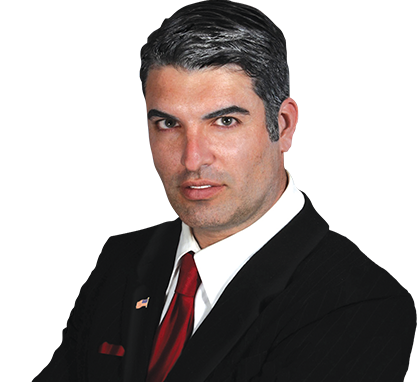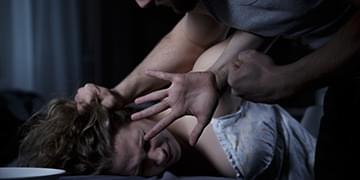
David S. Chesley
Sacramento Child Molestation and Child Pornography Defense Attorneys
Law Office of David Chesley
Bay Area Criminal Defense Lawyers Helping People Accused of Crimes Related to Child Molestation and Child Pornography
We continue to grapple with the fallout from decades of the abuse of children at the hands of adults who were in positions of trust. As a result, laws are stiffening, and law enforcement is aggressively filing charges in situations where they believe children have been victims of sexual abuse. Unfortunately, many people wind up getting accused of crimes they didn’t commit or subjected to punishments that are far harsher than they deserve.
If you’ve been charged with child molestation or child pornography, you need to speak with a Bay Area criminal defense attorney as soon as possible. With over 50 years of courtroom experience, the defense lawyers in Sacramento at The Law Offices of David S. Chesley can give you dedicated, aggressive legal representation to make sure you get a fair result. To protect your futures, schedule a free consultation by calling 800-755-5174 or contacting us online to schedule your free consultation today.
Child Molestation
California Penal Code Section 647.6 makes it illegal to “annoy” or molest any child under the age of 18 years old (note that “annoy” is synonymous with “molest” for purposes of the statute). Molestation is a much broader term than you might realize. It includes any conduct that –
- Is likely to disturb, irritate, or be observed by someone under the age of 18; and
- Is motivated by a sexual interest in children.
As you can see, molestation includes a broad variety of conduct. The following examples could each result in child molestation charges:
- Making sexually-explicit references to a 15-year-old girl.
- Masturbating on a playground while there are children present.
- Showing pornography on your phone to a 12-year-old boy.
Note that you do not need to touch the child or have any physical contact at all in order to be charged with child molestation.
Disturbing Behavior
To fully understand child molestation, we need to give some further discussion to the conduct prohibited by the statute.
You should note that the conduct does not need to actually disturb or irritate the child – you can be charged with child molestation if it is likely that the conduct would disturb a child. The question of whether you can be charged with child molestation focuses on the conduct itself and judged according to an objective standard.
Similarly, your conduct does not even need to be seen, heard, or otherwise observed by the child. You can be charged with child molestation if you were observed by an adult and your conduct was “likely” to be observed by a child.
Motivated by Sexual Interest in Children
In order to be convicted of child molestation, the prosecution must prove that you had the requisite intent. In other words, the prosecution must prove that your conduct was motivated by an unnatural or abnormal sexual interest in children. Again, the prosecution does not need to prove that you actually intended to disturb or upset the child, just that you engaged in behavior that would disturb the child and the conduct was motivated by a sexual interest in children.
In order to prove your intent, the prosecution will look to two factors:
- Past conduct towards children; and
- The particular circumstances surrounding your case.
Obviously, prior molestation charges would be problematic. The reality is, however, that it’s difficult for prosecutors to prove your intent. A criminal defense attorney in Sacramento can challenge the prosecution’s evidence and help you avoid conviction.
The Consequences of a Child Molestation Conviction
A first offense for child molestation is typically charged as a misdemeanor. As a result, you could be facing the following penalties:
- Up to one year in county jail;
- A fine of up to $5,000.
However, child molestation becomes a “wobbler” offense if you molested the child after entering their dwelling without consent. This means that you could be charged with a felony, and could spend 16 months, two, or three years in state prison.
Second and subsequent offenses for child molestation, however, are always charged as felonies. As a result, you could be sentenced to up to three years in state prison. You could also be charged with felony child molestation if you have a prior conviction for the following crimes:
- Child pornography
- Rape of a child under the age of 16
- Lewd acts with a child
- Continuous sexual abuse of a child
A conviction for felony child molestation with a prior conviction for one of these crimes could result in a sentence of two, four, or six years in state prison.
Child Pornography
It is illegal to sell, possess, produce, send, transport, or advertise pornographic material involving children in the state of California under Penal Code Section 311. In California, any image, video, computer file, or other material that depicts someone under the age of 18 engaged in a real or simulated sexual act is considered child pornography.
California’s laws against child pornography are intentionally broad. However, in order to be convicted on child pornography charges, the prosecution must show that you knowingly possessed, sold, distributed child pornography or otherwise engaged in prohibited behavior. As a result, you cannot be convicted of a child pornography charge in the following situations:
- You believed that the actors were over 18 years of age
- You accidentally came across child pornography on the internet
- You were unaware that there was child pornography on your computer
There may be other examples, so if you’ve been charged with child pornography, it’s important to speak with a Bay Area criminal defense lawyer right away.
Potential Penalties of a Child Pornography Conviction
Most child pornography crimes in California are wobblers, meaning that they can be charged as felonies or misdemeanors. The facts and circumstances of your case will determine whether you are charged with a felony or a misdemeanor, such as:
- Whether you simply had the material in your possession;
- Whether you intended or attempted to distribute it
- Whether you attempted to show it to a minor
A charged for first-time possession is likely to be charged as a misdemeanor, whereas involvement in a child pornography ring is likely to be charged as a felony.
If you are charged with a misdemeanor, you face the following penalties:
- A fine of up to $2,000
- Up to a year in county jail
The penalties for a felony child pornography charge are as follows:
- A fine of up to $100,000
- Anywhere from 16 months to 8 years in state prison.
Harsher sentences will be imposed on those who have prior child pornography convictions. You should also be aware that any conviction for child pornography will require lifetime registration as a sex offender.
Call Us Today to Schedule a Free Case Evaluation with a Bay Area Criminal Defense Attorney
Criminal charges for child molestation or child pornography are very serious, with consequences that can haunt you for the rest of your life. You could be facing time in prison, heavy fines, and lifetime registration as a sex offender. Protect your future by speaking with an experienced California criminal defense attorney. The Sacramento defense lawyers at The Law Offices of David S. Chesley have the skills, knowledge, and experience to get you a fair result. If you’d like to learn more about how we can help you, call us at 800-755-5174 or send us an email to schedule your free consultation.





